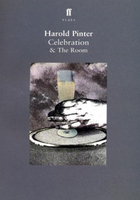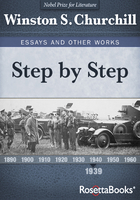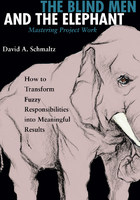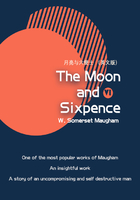Fiona and Izzy attended the Burns funeral as observers. Don Grant, the publisher of the Post, led a number of eulogizers. Burns was cited for his courage and fearlessness, his humanity, his eloquence, his devotion to his family, his passion for freedom and justice, and the usual clichés. Fiona recognized some political heavies from the current Administration, but mostly those in attendance were from the party out of power, some Senators and Congressmen, and of course, the stalwarts of the Washington media in a show of journalistic solidarity.
Fiona knew many of the attendees and acknowledged some with a nod or a discreet wave. Izzy noticed and indicated his admiration with a wide-eyed smile.
"My turf," she whispered.
"I'm impressed."
Larry was in attendance, along with most other key editors. Their gaze had met briefly, and Larry had winked. Fiona blew him a kiss. Izzy noted the gesture and smiled.
"Second coming," Izzy whispered. "At the least, sainthood."
"What would you expect?"
"I expect that everyone here believes that the corpse was the victim of deliberate assassination on you-know-who's orders. And that includes those who are part of his government."
"And you, Izzy? What do you believe?"
"I do not worship false idols. There is only one truth here. To find it is our mission." His biblical tone sounded oddly appropriate in this house of worship. She offered an approving glance, and Izzy nodded his understanding.
The detectives kept in the background as the assemblage followed the coffin outside to the funeral procession with the widow and her two daughters, the younger one obviously devastated, and literally kept upright by her mother and older sister.
The detectives were alert to any signs that might be helpful, but Fiona sensed that it was an exercise in futility. Izzy pointed out a female mourner whose grief was particularly effusive.
"Charlotte," Izzy whispered, "the deposed assistant."
Fiona nodded. Recognizing her raised the nagging question; why had Burns dismissed her? Was the excuse noted by his wife valid? Seeing her so heavily affected triggered further interest, and they both agreed that she was an essential, more in-depth interview.
They learned only the obvious from attending the funeral. Burns was an important media figure, with a big following in Washington and elsewhere, his politics notwithstanding. In death, the white flag flew proudly. Fiona knew the drill and swallowed what could only be called the lump of pride in American democracy, despite its messy system.
***
There was no avoiding being swept up in an unstoppable wave of political and media posturing. The rhetoric was rising, and Senators and Congressmen, especially of the out-of-power party, were demanding answers, threatening investigations, and savagely abusing the Administration for—the favorite charge of politicians—stonewalling. Conspiracy theories were accelerating, sparked by the press and television's talking heads that were retailing the idea that Burns had been murdered for political reasons.
The assertions, of course, were exaggerated and some were illogical and hysterical, but the story made good copy. And there were bloggers orchestrating their furious cacophony of for and against. Worse, its logic had some merit. The best way to get rid of a critic for all time is to kill him. Where there's smoke, there's fire was the operative motivation. In Fiona's eyes, it was a form of hysterics.
The suggestion of murder was abetted by Mrs. Burns who struck out savagely in the media, appearing on television and in the newspapers, to accuse the administration, particularly the President with being the architect of her husband's death. With her good looks and grooming, her low-key demeanor and lethal but articulate accusations, she was, despite the absence of witnesses, remarkably convincing.
The problem for the homicide detectives was that there were no clues and no witnesses and absolutely no evidence to suggest murder, which did not stop the heated rhetoric that ran through Washington like a river of flaming oil. Pressed by the Mayor, who in turn politicians pressed, Hodges had no choice but to appear at a press conference. For the first time, in Fiona's memory, he was reluctant.
"What can I tell them?" he asked.
"Tell them we're covering every base," Fiona said.
Hodges looked at her as if she had just told a bad joke.
"What they want is red meat. I'm told that this is one press conference in which there will be standing room only."
"Tell them the truth," Izzy said.
The Chief exchanged glances with Fiona.
"The truth is a nonstory. They'll think I'm hiding something."
"That's their problem, Chief," Fiona said, trying to calm her boss's fears. She had never seen him this tense and uncertain.
Hodges looked at his watch, then out the window where they were setting up cameras. He had chosen to make the situation as uncomfortable for the reporters as possible—no chairs, no big indoor hall. The problem with this one was that a huge crowd was gathering. Finally, he rose, checked his appearance in a wall mirror, and then started out his office door.
"Lamb to the slaughter," he muttered.
Fiona and Izzy walked a few steps behind him.
Standing in front of a bank of microphones, he was pummeled by reporters' questions.
"Are you being pressured in any way by the administration?" one reporter shouted above the din.
"No," Hodges said emphatically.
"Are you still convinced that this was a suicide or an accident?"
"Until all the facts are developed, I am never convinced of anything."
"Were there really no witnesses to Burns' fall?"
"There were no witnesses."
"When you rule out suicide or accident, do you rule in murder?"
"Ask me when we rule out suicide or accident."
"Why was Burns in disguise?" a woman reporter chirped in a shrill voice.
"It is still an open question."
"Have you been contacted by the FBI or the CIA?"
"No comment."
"Do you expect them to contact you?"
"This investigation is not their jurisdiction."
"Have you learned anything about Burns' death that you have not told us?"
"I am holding nothing back."
"Do you believe this was politically motivated?"
It was the usual trick question. Hodges was good at fielding them.
"What was?"
"Burns' death."
"Are you asking if Burns' death was politically motivated?"
The Chief smiled and shook his head. The gesture was his comment on the reporter's question, which was meant to dismiss it. The reporters laughed at this faux gesture of frustration.
Then Harrison Bolger, his jowls shaking as he spoke, chimed in.
"Chief Hodges," he began, the preface issued with obvious contempt, "why are you stonewalling? Everybody understands that this death smells suspiciously of murder perpetrated to silence one of the country's most vocal critics of this President. At the very least, why not acknowledge the obvious that this was no suicide or accident?"
Hodges listened stoically until the reporter finished, knowing that the question was asked to deliberately inflame him. To his credit, he showed no emotion.
"Mr. Bolger, I congratulate you on your alleged olfactory powers, but your detective instincts need some work. We do not make cases based on imaginary odors."
Bolger flushed deep red while some reporters snickered, although it was obvious that the reportorial tide was beginning to run against the Chief.
"Was the killing of Adams Burns a political assassination or not?" one of the television reporters asked, a young blonde, obviously trying to make her bones.
Fiona could see that some of the reporters were looking at this case as a career maker. Shades of Woodward and Bernstein, Fiona thought. They wanted to characterize the man as a toady. She caught the eye of the Chief, who nodded as if he had read her mind.
"We're in the detective business. When we detect the truth of the way Mr. Burns died, you will be the first to know. In the meantime, let us do our job."
It did not satisfy the reporters, who continued to shout questions in the wake of the departing Chief. Fiona and Izzy followed him into his office. He shrugged, slumped in his chair, and pulled out a Panatela, which he unwrapped, put in his mouth, and chomped. Before he could get a word out, the telephone rang. He picked it up, his face screwed up into a position of pain as he listened to the voice at the other end. Fiona couldn't hear what was being said but the level and tone of the voice sounded obviously angry.
"Sarcastic, Mayor?" Hodges asked into the phone. "We're being accused of stonewalling. I had to defend our integrity."
Fiona was proud of her boss. He did not bend easily. Apparently, the dressing down continued. He looked to the ceiling and made gestures that indicated he was being patient, although not obsequious. Then it was over, and he slammed down the phone.
"Let us say he didn't like my choice of words."
"Bolger is a mean-minded shit," Fiona said, ignoring the possibility of electronic surveillance, even welcoming it. "You simply didn't take his bait."
"Didn't need bait," the Chief said. "They're out to land the big one. I know it. They know it and…." He glanced from face to face. "And you know it." He chomped down on his Panatela and spit out a wad of moist tobacco, which missed his ashtray. "We haven't even got a guppy to throw at them." He looked up, his eyes streaked with red veins shaped like lightning bursts.
"We understand the drill, Chief," Fiona said, displaying her sense of kinship with her boss, never more connected. She wanted to lighten his mood. "We'll start at the beginning and go on until the end, then stop."
"We're all Alice in Wonderland on this one, FitzGerald," Hodges retorted, showing off his well-read bona fides.
"If there's a connection," Izzy said, his attitude like a battle cry, "we'll find it, Chief."
"And if there isn't?" Fiona asked.
"Then we'll find that, too."
***
The reporters had tried every which way to get the Chief to open the door to the possibility of murder. He declined to give them the satisfaction, and the press conference, Fiona thought, had ended in dissatisfaction. She fully expected the media to blast her boss for deliberate obfuscation.
All agreed that the most baffling aspects of Burns' death were the lack of personal identification and the false moustache and phony eyeglasses. The origin of the eyeglasses was hardly a mystery. They could be purchased at numerous places—drug stores, department stores, supermarkets. They were just too ordinary to be traced. The moustache was another matter. There were a number of stores in Washington and the suburbs that dealt in such costuming accouterments.
To save time, they split up, with Izzy working the northern Virginia suburbs and Fiona, Maryland and the District of Columbia. Armed with a picture of Burns, they spent the day canvassing the stores. Considering the number and styles of the moustaches, they had speculated that Burns had bought them all at one place.
At a magic store in the District, Fiona found a clerk with a vague memory of the sale. The picture was of no help. Probably wore a hat and specs, Fiona reasoned, but the clerk remembered the sale.
"I had to go into the stockroom to get a full selection. He took about a dozen styles, including some phony beards. Paid cash."
"Did he give any hint of his intentions?"
"I never asked, and he never said. I assumed some costumed gig."
"Why so many styles?"
"You'd have to ask him."
"Wish I could," Fiona mused aloud.
"Hardly helpful," Izzy admitted to Fiona when they met again. "Answers where but not why."
"Easy on the why. He did not want to be recognized," Fiona muttered.
"Why?"
"God knows."
"You claim the inside track, Izzy. You ask him."
Izzy chuckled then grew serious.
"No accident, Fi," Izzy said. "Burns would be too alert to make a misstep on a train platform. Not exactly a common incident in an empty non–rush hour station. As for suicide…."
"The man was a writer. Writer's write. The lack of a note inhibits any clear vote for suicide."
"Still, it could be an out. Declare suicide and close the book."
"In fairyland maybe, not in this snake pit of contrarians where even the tiniest hint of conspiracy can spark an industry. Look at the Kennedy assassination. Go back to Lincoln. This dude was pushed."
"Seems…." Izzy paused.
"Sloppy," Fiona said. "Too public, too obvious, too stupid."
"Maybe we should take the road less traveled."
Fiona laughed, thinking of the Eggplant and his reading habits.















